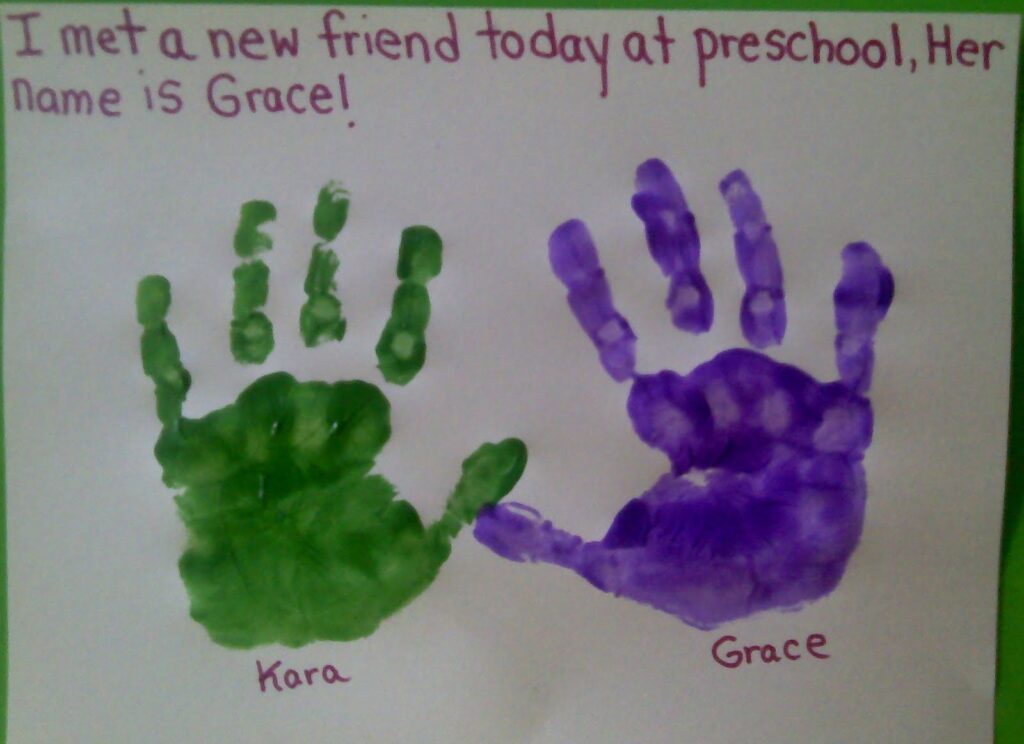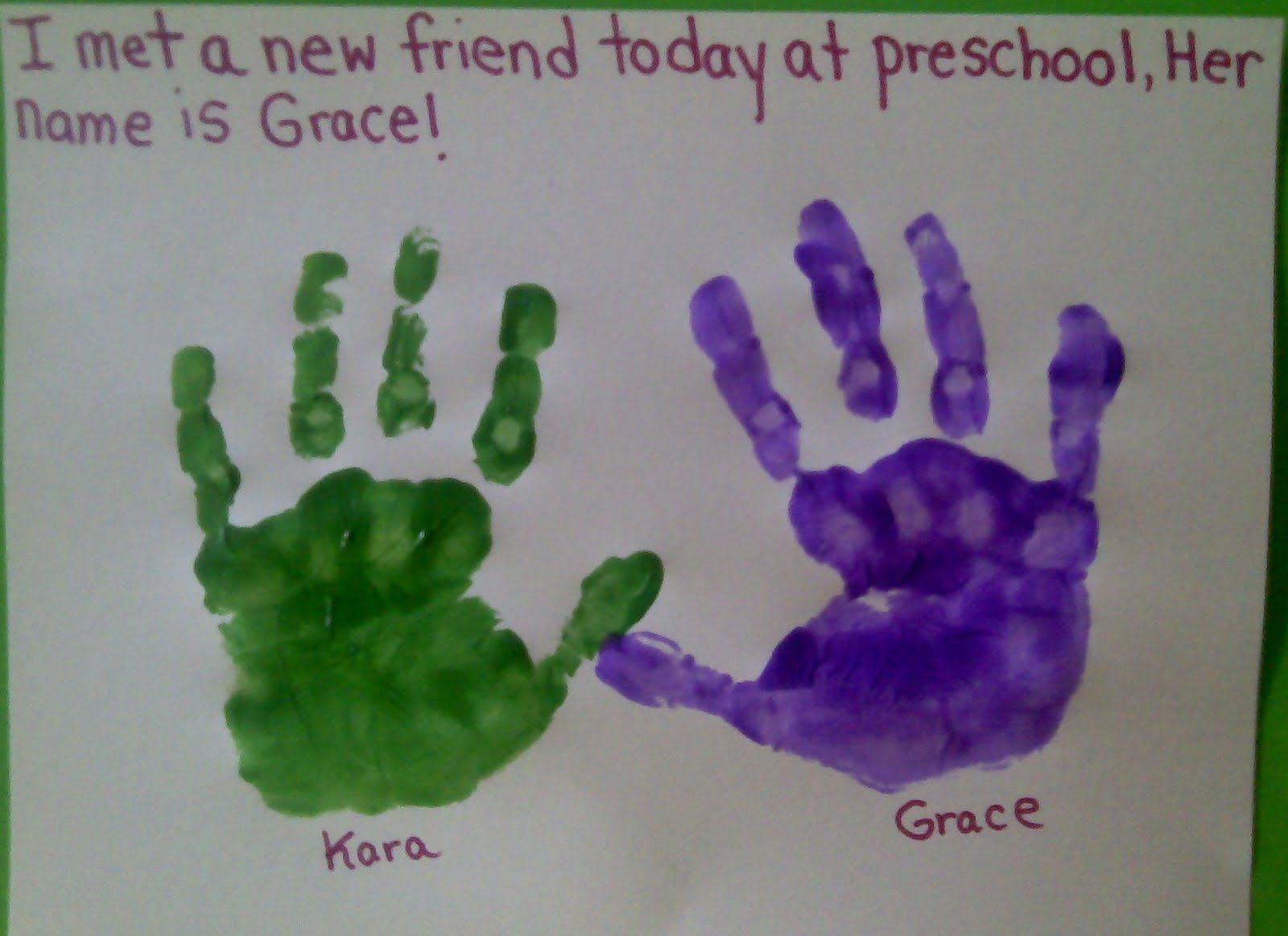
Fostering Bonds: Engaging Friendship Activities for Preschoolers
Preschool is often a child’s first foray into a structured social environment. It’s a crucial time for developing essential social skills, and among the most important is the ability to form and maintain friendships. Thoughtfully planned friendship activities for preschoolers can significantly contribute to their social and emotional growth, setting the stage for positive relationships throughout their lives. These activities not only promote interaction but also teach valuable lessons about empathy, cooperation, and communication. Let’s explore some effective and engaging ways to cultivate friendship among preschoolers. We aim to provide educators and parents with practical ideas and strategies to create a supportive and inclusive environment where young children can learn to connect with one another.
Why Friendship Activities Matter in Preschool
The preschool years are a critical period for social and emotional development. Children at this age are beginning to understand the concept of relationships and how to interact with others. Engaging in friendship activities for preschoolers helps them to:
- Develop Social Skills: Learning to share, take turns, and cooperate are fundamental social skills that are honed through structured activities.
- Build Emotional Intelligence: Activities that encourage empathy and understanding of others’ feelings help preschoolers develop emotional intelligence.
- Reduce Anxiety: Feeling connected to peers can reduce anxiety and promote a sense of belonging, making the transition to school easier.
- Enhance Cognitive Development: Social interaction stimulates cognitive development as children learn from one another and solve problems together.
- Promote Self-Esteem: Positive interactions and successful friendships contribute to a child’s self-esteem and confidence.
Creative Friendship Activities for Preschoolers
Collaborative Art Projects
Art is a fantastic medium for promoting collaboration and creativity. Collaborative art projects encourage children to work together towards a common goal. Here are some ideas:
- Large Mural Painting: Provide a large sheet of paper or canvas and let the children paint a mural together. Encourage them to discuss their ideas and contribute to the overall design.
- Friendship Bracelets: Teach the children how to make simple friendship bracelets for one another. This activity promotes fine motor skills and fosters a sense of connection.
- Group Collage: Gather a variety of materials such as magazines, fabric scraps, and natural elements. Have the children work together to create a collage that represents friendship.
Cooperative Games
Cooperative games emphasize teamwork and collaboration rather than competition. These games teach children to work together to achieve a shared objective. Consider these options for friendship activities for preschoolers:
- Parachute Play: A parachute is a versatile tool for cooperative games. Children can work together to make waves, lift the parachute, or toss balls into the center.
- Building Challenges: Provide blocks, Legos, or other construction materials and challenge the children to build a tower, bridge, or other structure together.
- Obstacle Course: Create a simple obstacle course and have the children work together to navigate it. They can help each other over hurdles, through tunnels, and around cones.
Storytelling and Role-Playing
Storytelling and role-playing are excellent ways to promote empathy and understanding. These activities allow children to explore different perspectives and practice social skills in a safe environment. Some examples include:
- Friendship Story Circle: Sit in a circle and have each child contribute a sentence or two to create a story about friendship.
- Puppet Shows: Use puppets to act out scenarios that involve friendship, conflict resolution, and cooperation.
- Role-Playing Scenarios: Present the children with different scenarios, such as sharing a toy or helping a friend who is sad, and have them role-play how to handle the situation.
Music and Movement Activities
Music and movement activities are a fun and engaging way to promote social interaction and cooperation. These activities encourage children to move together and express themselves creatively. Consider these engaging friendship activities for preschoolers:
- Dance Party: Play upbeat music and let the children dance together. Encourage them to hold hands, make circles, and follow each other’s movements.
- Musical Games: Play musical games such as musical chairs or freeze dance, but with a focus on cooperation rather than competition. For example, have the children work together to find a chair for everyone or freeze in a friendship pose.
- Sing-Alongs: Sing songs about friendship, kindness, and cooperation. Encourage the children to sing together and make up their own verses.
Outdoor Friendship Activities
Taking activities outdoors can provide a refreshing change of scenery and encourage physical activity. Outdoor friendship activities for preschoolers can be just as effective as indoor ones. Here are a few ideas:
- Nature Scavenger Hunt: Create a list of items for the children to find in nature, such as leaves, rocks, and flowers. Have them work together to find all the items on the list.
- Gardening: Plant flowers or vegetables together in a garden. This activity teaches children about responsibility, cooperation, and the importance of nurturing.
- Picnics: Organize a picnic and have the children work together to prepare the food and set up the picnic area. This activity promotes teamwork and social interaction.
Creating a Supportive Environment
In addition to structured activities, it’s essential to create a supportive environment that encourages friendship and positive social interaction. Here are some strategies to foster such an environment:
- Model Positive Behavior: Children learn by observing the adults around them. Model positive behavior, such as kindness, empathy, and respect, in your interactions with the children and with other adults.
- Teach Conflict Resolution Skills: Teach children how to resolve conflicts peacefully and respectfully. Encourage them to use their words to express their feelings and to listen to each other’s perspectives.
- Promote Inclusivity: Create a classroom environment where all children feel valued and respected. Celebrate diversity and encourage children to learn about different cultures and backgrounds.
- Provide Opportunities for Social Interaction: Create opportunities for children to interact with one another throughout the day, such as during free play, snack time, and outdoor activities.
- Offer Positive Reinforcement: Provide positive reinforcement for children who demonstrate kind and cooperative behavior. Praise them for sharing, helping others, and resolving conflicts peacefully.
Addressing Challenges in Friendship Formation
While most children thrive in a supportive environment, some may face challenges in forming friendships. It’s important to be aware of these challenges and to provide support and guidance to children who are struggling. Common challenges include:
- Shyness: Some children may be shy and hesitant to approach others. Encourage shy children to participate in group activities and provide them with opportunities to interact with other children in a smaller, more structured setting.
- Aggression: Some children may exhibit aggressive behavior, such as hitting, biting, or pushing. Address aggressive behavior immediately and teach children alternative ways to express their feelings and resolve conflicts.
- Social Isolation: Some children may feel isolated and excluded from their peer group. Reach out to these children and provide them with opportunities to connect with others. Pair them with a buddy during activities or encourage them to join a small group.
- Communication Difficulties: Children with communication difficulties may struggle to express themselves and understand others. Provide these children with support and resources to improve their communication skills. Consider using visual aids, such as pictures or gestures, to help them communicate their needs and feelings.
Successfully implementing friendship activities for preschoolers requires a thoughtful approach and a commitment to creating a supportive and inclusive environment. By providing children with opportunities to interact with one another, teaching them essential social skills, and addressing challenges that may arise, educators and parents can help preschoolers develop meaningful friendships and build a strong foundation for future social success. Remember that fostering friendship is an ongoing process that requires patience, understanding, and a willingness to adapt to the individual needs of each child. Consider also [See also: The Importance of Play-Based Learning] when designing these activities.
The Long-Term Benefits of Early Friendships
The benefits of fostering friendships in preschool extend far beyond the classroom. Early friendships can have a lasting impact on a child’s social, emotional, and cognitive development. Children who form strong friendships in preschool are more likely to:
- Have Higher Self-Esteem: Positive social interactions and supportive friendships contribute to a child’s self-esteem and confidence.
- Be More Resilient: Children with strong social support networks are better able to cope with stress and adversity.
- Have Better Academic Outcomes: Social skills and emotional intelligence are essential for academic success. Children who are able to cooperate, communicate, and resolve conflicts are more likely to thrive in school.
- Have Healthier Relationships Later in Life: The social skills and emotional intelligence developed in preschool lay the foundation for healthy relationships throughout life.
In conclusion, friendship activities for preschoolers are a valuable investment in their future. By providing children with opportunities to connect with one another, teaching them essential social skills, and creating a supportive environment, we can help them develop meaningful friendships and build a strong foundation for social and emotional well-being. These early experiences will not only enrich their lives during the preschool years but also set them on a path towards positive relationships and success in the years to come. The focus should always be on creating an inclusive environment where every child feels valued and has the opportunity to thrive. Further reading on related topics like [See also: Developing Social Skills in Early Childhood] can provide additional insights and strategies.

